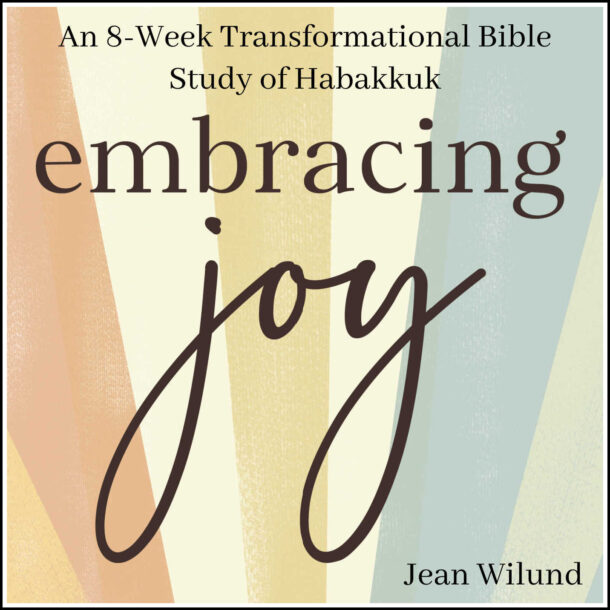
Transformational Bible Study. That’s what we want—a way to study the Bible that truly transforms us and doesn’t just inform us. And we want it with an Easy Button, right?
Despite our advances in technology, there are still many things we must do for ourselves, like studying the Bible in a way that leads to transformation.
The good news is it’s not as hard as we make it out to be. It starts with hearing.
So faith comes from what is heard, and what is heard comes through the message about Christ. (Romans 10:17 CSB)
Hear the Word of the Lord
When my dad spoke, I listened—except when I was engrossed in a TV show.
I’d look Dad straight in the eyes, say, “Yes, sir,” and then panic after he drove off because I had no idea what I’d promised to do while he was gone. (Cell phones didn’t exist back then.)
My dad was a kind man, but he demanded respect and obedience.
When he spoke, he didn’t mean, “Hear my words, but do whatever you want.” He meant, “Hear my words, understand what I’m saying, and respond in proper obedience.”
Our kind heavenly Father calls us to the same, if not a greater, level of hearing (Luke 11:28; Matt. 7:24; 1 John 2:3–6).
I call this shema-hearing, based on the wonderful Hebrew word shema.
Shema implies a fullness of listening in which we hear, understand, and respond.
- Hear the Word of the Lord
- Understand its meaning
- Respond in proper obedience.
Right before God gave the Israelites the Ten Commandments, He demanded their full attention, saying, “Shema, Yisrael.”
Listen, Israel [Shema, Yisrael]: The Lord our God, the Lord is one. Love the Lord your God with all your heart, with all your soul, and with all your strength. These words that I am giving you today are to be in your heart.
Deuteronomy 6:4–6
Hear, O Christian
Like the Israelites in Deuteronomy 6, God calls Christians to hear, understand, and respond to the truth that He is the Lord and there is no other besides Him.
He is the Triune God: Father, Son, and Holy Spirit. And we are to love Him with our entire being—all of our heart, soul, mind, and strength.
We’re to fix our hearts on His Word so that it holds our attention and directs our every decision (Mark 12:29–31).
This is the heart of Bible study and the transformational Bible study method (which I am about to explain).
God calls us to hear His intended message, understand the truths He’s revealed, and respond to these truths out of grateful hearts in humble obedience. In this order.
As we linger in the pages of the Bible and practice shema-hearing, the Holy Spirit will open our eyes to see who God truly is. And we’ll never be the same.
He transforms us by the hearing of His Word (Rom. 10:17).
The Transformational Bible Study Method
This Bible study method isn’t a three-step solution to a victorious Christian life.
Methods don’t transform; God does. He is our prize of great worth.
Any transformation we experience as we use this method is the happy result of hearing the Bible author’s intent, understanding the truth God reveals in His Word, and responding to the truth for transformation. Shema!
When you read the Bible, keep these three questions in mind.
1. Intent: What was the author’s intent to his original audience?
The authors of the Bible wrote for the people of their time. But God also meant it for us (1 Cor. 10:11; Rom. 15:4).
The authors wrote in a manner their contemporary audience understood but one that doesn’t always make sense to us. If we jump straight to what the passage means for us today with our twenty-first century mindset, we’re likely to make it mean something God never intended.
If we remember the historical, cultural, biblical, and literary context of the passage, we’ll avoid inserting our modern worldview into the ancient text.
Consider these questions as you read:
- Historical Context: What was happening in history at the time this book was written? (Was Israel in captivity or were they ripe for being sent into captivity? What promises had God given His people at that time? What were the rulers of that day like? Evil or good?)
- Cultural Context: What cultural elements of their time should we consider in the passage? What seemed normal to them might horrify us today. We want to avoid imposing our cultural norms onto the Bible passage. (What cultural practices dictated their behavior? Such as, how did the ancient culture view strangers and hospitality or slavery and servants? What were the common rules of warfare?)
- Biblical Context: How does this passage or book fit into the context of the individual book and the whole Bible? (Were the truths in this passage or book given to Christians or unbelievers? What events happened immediately before and/or after the passage that clue us into its true meaning?)
- Literary Context: How does the type of literature the author wrote affect the passage’s meaning? (Was this author using poetic symbolism and imagery? Or is this a historical book giving literal details? Is the book a letter addressing a church’s or an individual’s needs? Or is it a sermon written to Christians in general?)
If you don’t know the answers to these questions yet, don’t worry.
A good study Bible (such as the MacArthur Study Bible, the Reformation Study Bible, or the ESV Study Bible) or the commentary sections on websites like BlueLetterBible.org or Biblehub.com can provide great insight into ancient cultures and context. We’ll look at some helpful study tools in a future article.
While you’re learning how to study the Bible and learning what it means, keep reading through the Bible.
Don’t give up.
Everything we learn today will help us understand more tomorrow, and the next day, etc.
As we read, let’s remember that we’re reading an ancient (but not outdated) text, so let’s lay aside our twenty-first century lens and consider the words in its ancient (and eternal) context.
2. Truth: What truths does God’s Word reveal about the character, nature, and ways of God, and of anyone/anything other than Him in the passage?
The more we see and understand about the Father, Son, and Holy Spirit, the more our hearts will soften toward the things of God.
The deeper we understand His character, nature, and ways, the higher our awe of Him will soar and the more peace will reign over our hearts.
The more we see and understand about ourselves as well as the world, sin, and Satan—how unlike God we are—the more God’s Word will soften our wills to the Holy Spirit’s work in our hearts. We’ll respond with brokenness, repentance, and true worship.
As you read through a passage, notice and maybe write down in the margins or in a notebook what God has revealed about Himself, His character, or His ways, and that of anyone or anything else in the passage.
- What does God teach the original audience (and us) about the Father, Son, and Holy Spirit in this passage?
- How do we see the presence or work of Christ in this passage?
- In what way is the work of the Holy Spirit in view?
- What truths does God expose about us and our true nature?
- Christians have a new nature in Christ that loves God but still have sin dwelling in and tempting us. What does the text reveal about Christians?
- Non-Christians are dead in their sin and enslaved to it. What does the text reveal about them that we need to know and understand?
- What truths does God expose about the character, nature, and ways of sin, Satan, and the world?
3. Transformation: Ask yourself, “If I truly believe and act on what God has revealed in His Word, how will my heart (my motivations and attitudes) be changed and my actions be different tomorrow?”
Belief demands a response. “Faith without works is dead” (James 2:26).
True belief not only demands a response, it can’t help but respond.
It’s not just that we can obey God and conquer sin if we believe and act on His Word. The exciting truth is that we will. God will do it in us (Phil. 2:13; Heb. 13:20–21).
God’s Word transforms our lives into lives of worship, peace, and joy independent of our circumstances. It anchors us in the unchanging bedrock of God Almighty.
As you study the Bible, ask yourself these transformational Bible study questions:
- How does God lead me to respond in this passage? If I truly believe and act on it, how will I be moved to conviction? Repentance? Obedience? Worship?
- What will it look like in my life to remember and trust in any promises God has revealed in this passage?
- Is there an area of sin in my life or unbelief in my heart revealed by the truths in this passage?
- Is there anything I need to confess? Do I need to seek forgiveness? Or offer it to someone else?
Fix Your Eyes upon Jesus
In the past, I’d read a Bible passage and immediately ask myself application questions rather than first looking for God in the text.
Rather than responding to what I learned about God, I immediately made the text about me and “how I should live.”
Without realizing it, I made the Bible about myself rather than about God and His glory.
The Bible is for us, not about us. It’s all about Christ.
I’d inadvertently turned Christianity into a life of “read this, then do that, and you’ll be happy.”
Except I wasn’t happy. I was exhausted.
Once I quit focusing on applying God’s Word as if it were no more than a book of useful lessons, I began to fix my eyes on the Triune God, and I couldn’t look away.
The truth of who He is soaked into my soul.
My heart began to love what He loves and hate what He hates.
His Word began to direct all my interactions and thoughts as a natural overflow rather than a wearisome effort.
My life began to glorify God more—and joy flooded my soul.
I’m not yet where I want to be, but I’m growing and changing every day—and in the right direction, I should add.
Transformation is a life-time journey God takes us on by the power of His Word and Spirit at work in us.
The Miracle of God’s Word
I told my son after the birth of his twins that the most dangerous thing he could do as a father or husband is to stop reading the Bible.
It’s easy to be overwhelmed by life and responsibilities, to be consumed by great and wonderful things like the birth of children or new career opportunities. But if we allow anything to keep us from God’s Word, we cut ourselves off from the Bread of Life who feeds our soul.
We set ourselves up for discouragement, frustration, and powerlessness, which impact every area of our lives and those we love most.
As my son raises his children into adulthood, he’ll expect them to hear what he says, understand what he means, and respond out of obedience—even if they’re engrossed in a TV show. He’ll demand this because he loves them.
God has set His love on us.
Oh, that we would have hearts willing to set aside the time to linger in His Word and look for the One who loves us most.
Shema!
Shall we get started?
“In the beginning . . . ” (Genesis 1:1).
What’s Next?
You may be excited to start studying the Bible but wondering how you can look for the truths about God’s character, nature, and ways if you don’t know what they are. In our next article, we’ll look at many of the amazing attributes of God.
A version of this article first appeared on Revive Our Hearts in How to Fall in Love with the Bible (Part 2) and here on my website in Is There an Easy and Transformational Way to Study the Bible? (I’m quite passionate about this topic.)






